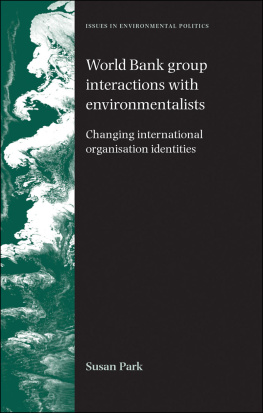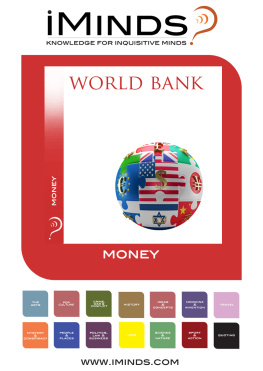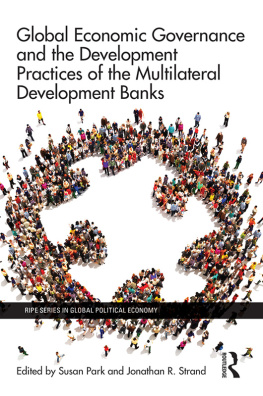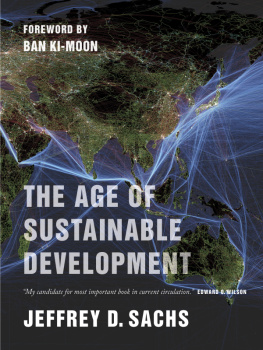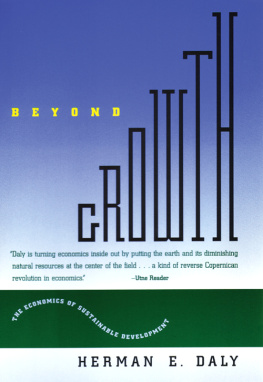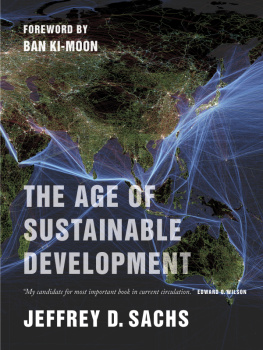World Bank Group interactions with environmentalists
Issues in Environmental Politics
series editors Mikael Skou Andersen and Duncan Liefferink
At the start of the twenty-first century, the environment has come to stay as a central concern of global politics. This series takes key problems for environmental policy and examines the politics behind their cause and possible resolution. Accessible and eloquent, the books make available for a non-specialist readership some of the best research and most provocative thinking on humanitys relationship with the planet.
already published in the series
Science and politics in international environmental regimesSteinar Andresen, Tora Skodvin, Arild Underdal and Jrgen Wettestad
Animals, politics and morality (2nd edn)Robert Garner
Implementing international environmental agreements in RussiaGeir Hnneland and Anne-Kristin Jrgensen
Implementing EU environmental policyChristoph Knill and Andrea Lenschow (eds)
Environmental politics in the European Union: policy-making, implementation and patterns of multi-level governance Christoph Knill and Duncan Liefferink
Sweden and ecological governance: straddling the fence Lennart J. Lundqvist
Bounded rationality in decision-making: how cognitive shortcuts and professional values may interfere with market-based regulation Helle Nielsen
Global warming policy in Japan and Britain: interactions between institutions and issue characteristics Shizuka Oshitani
North Sea cooperation: linking international and domestic pollution control Jon Birger Skjrseth
Climate change and the oil industry: common problem, varying strategies Jon Birger Skjrseth and Tora Skodvin
Environmental policy-making in Britain, Germany and the European UnionRdiger K. W. Wurzel
World Bank Group interactions with environmentalists
Changing international organisation identities
Susan Park
Copyright Susan Park 2010
The right of Susan Park to be identified as the author of this work has been
asserted by her in accordance with the Copyright, Designs and Patents Act 1988.
Published by Manchester University Press
Oxford Road, Manchester M13 9NR, UK
and Room 400, 175 Fifth Avenue, New York, NY 10010, USA
www.manchesteruniversitypress.co.uk
Distributed in the United States exclusively by
Palgrave Macmillan, 175 Fifth Avenue, New York,
NY 10010, USA
Distributed in Canada exclusively by
UBC Press, University of British Columbia, 2029 West Mall,
Vancouver, BC, Canada V6T 1Z2
British Library Cataloguing-in-Publication Data
A catalogue record for this book is available from the British Library
Library of Congress Cataloging-in-Publication Data applied for
ISBN 978 0 7190 7947 4
First published 2010
The publisher has no responsibility for the persistence or accuracy of URLs for any external or third-party internet websites referred to in this book, and does not guarantee that any content on such websites is, or will remain, accurate or appropriate.
Typeset
by Action Publishing Technology Ltd, Gloucester
Printed in Great Britain
by the MPG Books Group, Bodmin
For Matt
Contents
List of figures and boxes
Figures
Boxes
Preface
I became interested in the World Bank during the height of the second generation of reforms within the organisation the shift from the mass protest campaigns of the 1980s to ongoing campaigns for policy, information disclosure and accountability reforms in the 1990s. I was roused by the early ferocity of anti-Bank campaigners and the widespread challenge to the orthodoxy of the institution whose mandate of reconstruction and development was surely positive. It became clear throughout my research into the World Bank Group that there is much more than a simple pro- or anti- position on the role of international financial institutions in developing countries. That the Bank has wrought damage on the natural environment and facilitated the forcible movement of peoples is clear. That it has since improved its policies, procedures, environmental funding and oversight mechanisms is also evident. That it can do more is not in doubt. Organisational change, as scholars of bureaucracies know only too well, is neither fast nor necessarily linear.
Yet change is possible. Whether financial instruments can be wielded for positive environmental outcomes remains open for serious investigation. At this stage, mitigating environmental damage is central to viewing the importance of interactions between environmentalists, the organisations of the World Bank Group, and the member states that direct them. Some of the history of the environmental campaigns against the World Bank may be familiar to you. These are discussed in , which provides a comprehensive account of the project, policies and institutional changes within the organisation from the 1970s to the present. This recounting is important because the activities of environmentalists that shaped the World Bank are now used by environmentalists to challenge other components of the World Bank Group, bilateral export credit agencies and private banks.
The rapid opening up of developing countries to direct foreign investment and trade demonstrates the importance of examining how private sector operations in developing countries have been facilitated by institutions such as the International Finance Corporation (IFC) and the Multilateral Investment Guarantee Agency (MIGA). That these institutions have also come under the scrutiny of environmentalists demonstrates not only an expansion of development investment and underwriting, but the possibility of greening these industries.
on IFC and 5 on MIGA unpack the layers of these institutions again through their project, policy and institutional changes. Their stories, like the World Banks, are very much bound by how those operating them view the world through the prism of the organisations identity. Environmental ideas, first derided and rejected, then engaged with and adopted, can be seen as a positive sign for those wishing to influence the future of project investment lending and underwriting. The shift in the project investment industry through the Equator Principles is a positive step, spearheaded by IFCs engagement with environmentalists. MIGAs belated and top down response is rooted in the belief that the natural environment is not part of what political risk insurers do, although change is coming. Environmentalists engagement with these organisations is based on shaping these institutions to influence broader industry practice. Both the Bank and IFC demonstrate that this can happen; whether MIGA chooses to take on this mantle remains to be seen.
Perhaps more important however, is how environmental ideas are understood within international political economy. Industrialised states developed first and then began to address environmental problems. Official development assistance may aid sustainable development but it will not instigate ecological innovation. Developing countries continue to face significant development obstacles while beginning to grapple, to varying degrees, with environmental problems. Yet lending institutions like the World Bank Group are still dominated by industrialised states and are seen to be the owners of some environmental ideas, including environmental and social safeguard policies. The history of the World Bank in developing countries and the NorthSouth political divide both indicate that spreading environmental norms through these organisations, in spite of, or even because of, their expertise is not enough to make development ecologically sustainable. The proliferation of financing mechanisms in the international development market further indicates that borrowers, either through the World Bank Group or through other financing instruments, increasingly have the power to fundamentally reconstitute sustainable development. This is the challenge for the twenty-first century.

